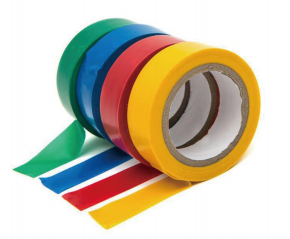The Growing Demand for Insulation Tape Manufacturers
In today's fast-paced industrial world, insulation tape has become a pivotal component across various sectors, from electronics to construction. As the demand for advanced insulation solutions continues to rise, the role of insulation tape manufacturers has never been more critical. In this article, we will explore the various applications, types, and the future of insulation tape manufacturing.
Understanding Insulation Tape
Insulation tape is a non-conductive material used to insulate electrical wires and other components, ensuring safety by preventing accidental electrical shocks and short circuits. Beyond electrical applications, insulation tape is also utilized in numerous other industries, including automotive, HVAC, and even in household products. Its versatility and effectiveness in creating a robust barrier have made it an essential material for both professional and DIY projects.
Types of Insulation Tape
There are several types of insulation tapes available, each tailored to specific applications
1. PVC Insulation Tape This is the most widely used type, known for its durability and resistance to wear and tear. It's often used in electrical applications due to its ability to withstand different temperatures.
2. Vinyl Electrical Tape Similar to PVC, vinyl insulation tape is specifically designed for electrical applications. It provides excellent insulation and is available in various colors, which can be useful for color-coding wires.
3. Rubber Insulation Tape This type is known for its elasticity and is often used in environments where flexibility is necessary. It can conform to different shapes, making it suitable for irregular surfaces.
4. Fiberglass Insulation Tape This is used in high-temperature environments, such as in electrical appliances and high-heat applications. It’s often utilized in industries that require robust temperature resistance.
insulation tape manufacturers

5. Aluminum Foil Tape Primarily used in HVAC applications, aluminum foil tape provides a moisture barrier and excellent thermal conductivity, making it ideal for ductwork insulation.
Market Growth and Challenges
The growth of insulation tape manufacturers is largely driven by the increasing demand for electrical insulation in various industries. The rise in renewable energy projects, such as solar and wind, has further boosted the need for quality insulation products, ensuring the safe and efficient operation of electrical systems.
However, manufacturers face several challenges. Competition from low-cost imports, fluctuating raw material prices, and the need for continuous innovation to meet changing industry standards can strain operational capabilities. Ensuring product quality while maintaining production efficiency requires manufacturers to invest in advanced technology and ongoing employee training.
The Future of Insulation Tape Manufacturing
Looking forward, the insulation tape manufacturing industry is set for transformative growth. With the advent of new materials and technologies, manufacturers are increasingly focused on producing tapes that not only meet stringent safety guidelines but also offer sustainable solutions. Biodegradable insulation tapes made from environmentally friendly materials are being researched and developed, addressing the growing consumer demand for eco-friendly products.
Additionally, the integration of smart technology into insulation products may eventually lead to innovations such as self-adhering tapes that can adapt to environmental changes or tapes that can monitor electrical flow in real-time.
Conclusion
As the market for insulation tape continues to expand, manufacturers must navigate both opportunities and challenges to thrive. Innovation, adaptability, and a commitment to sustainability will play key roles in shaping the future of this vital industry. Whether in electrical, automotive, or construction applications, insulation tape is set to remain an indispensable component in ensuring safety and efficiency across various fields. The evolution of insulation tape manufacturers promises exciting developments for the industry and its consumers alike.
-
XIANGFAN Rubber Tape-Ultimate Solutions for All Your Insulation NeedsNewsJun.24,2025
-
XIANGFAN Rubber Tape-Protection for Industrial and Residential ApplicationsNewsJun.24,2025
-
XIANGFAN Rubber Tape: Superior Safety and Sealing for Demanding EnvironmentsNewsJun.24,2025
-
XIANGFAN Rubber Tape: Reliable Solutions for Every Electrical ChallengeNewsJun.24,2025
-
XIANGFAN Electrical & Industrial Tape: Powering Reliability Across IndustriesNewsJun.24,2025
-
XIANGFAN Electrical & Industrial Tape: Excellence in Every ApplicationNewsJun.24,2025
